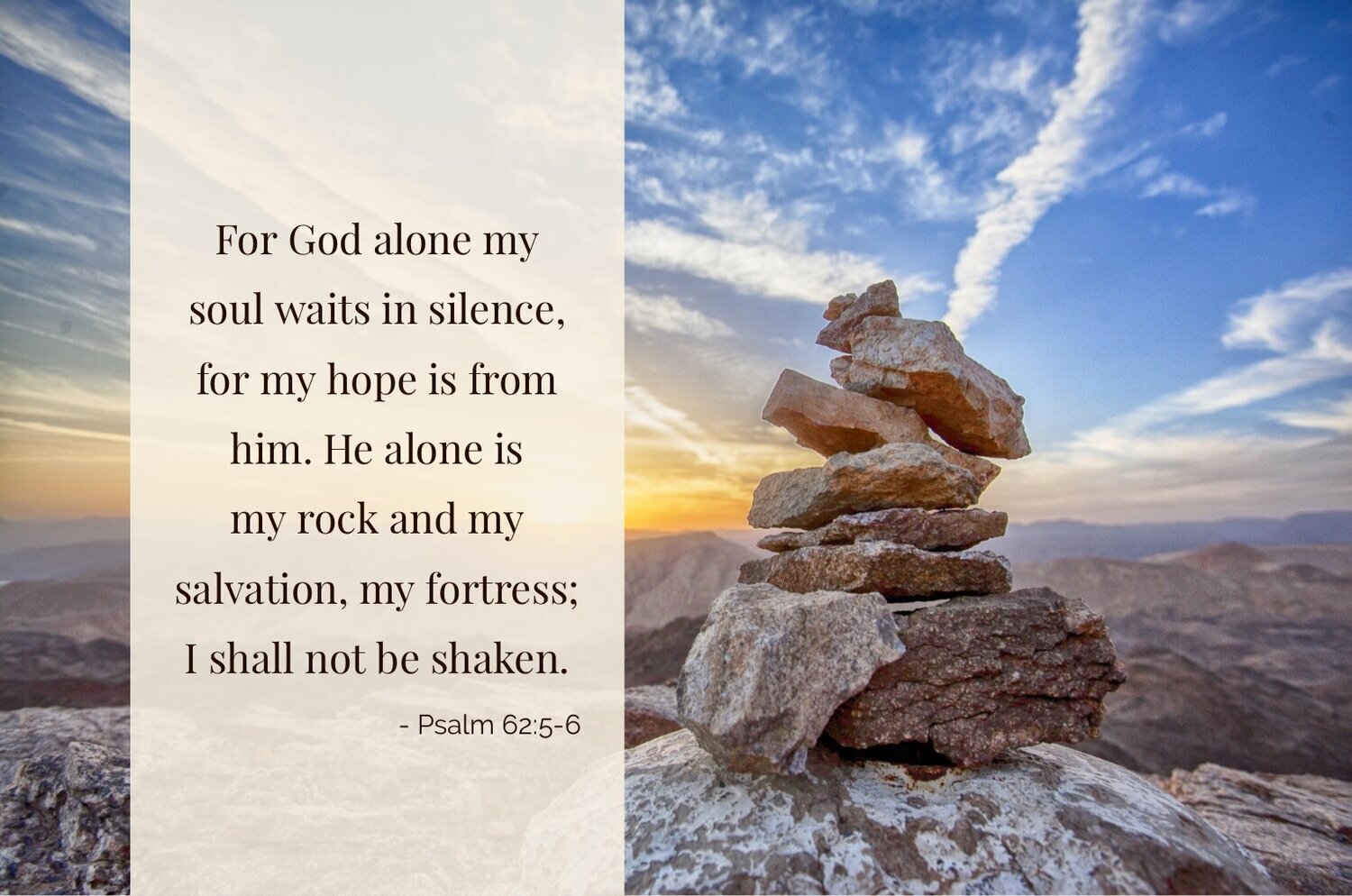The top devotion of 2019 comes from the WELCOME series and it is a story from Walt’s childhood about two very special neighbors.
Great Neighbors
STEP ONE: BREATHE
Take a deep, cleansing breath. Allow the air to fill your lungs and expand your body. Exhale and empty yourself into the room. Repeat three times - once for the one who Created you, once for the Incarnate One who walks beside you, and once for the Spirit whose life fills your being.
STEP TWO: DWELL IN WORD
“People were bringing little children to him in order that he might touch them; and the disciples spoke sternly to them. But when Jesus saw this, he was indignant and said to them, “Let the little children come to me; do not stop them; for it is to such as these that the kingdom of God belongs. Truly I tell you, whoever does not receive the kingdom of God as a little child will never enter it.” And he took them up in his arms, laid his hands on them, and blessed them.”
— Mark 10: 13-16
Ed and Marie lived in the white ranch house directly across the street from the place where I lived most of my childhood and adolescence. They were a kind, older couple. Although they never had children of their own, they loved kids and shared an experienced welcome with them. On an impromptu visit to their house, there were always cookies, milk, and a game to play.
Occasionally, my mom would run late with her errands and not make it home in time before we returned from school. Huber Street School was up the block, a short walk away. In the days before we had a house key, if we got home before our mother did, then it was time to scurry across the street to visit Ed and Marie.
There was nothing extravagant about them except for their gracious hospitality. Unlike many adult counterparts, Ed and Marie treated children as people. They were genuinely interested in what we were doing and how school was going. My parents raised us to respect elders and always address adults as Mr. and Mrs. Ed and Marie, however, did not want to be called by their last name. They were always to be "Ed and Marie."
Ed taught my brother and me how to hold a golf club. In his basement, he set up a little chip and put range. With patience and good cheer, he tutored us in the finer points of form as we hit golf balls across the room towards a netting against the far wall. It was fun.
Ed owned a white Impala with a red interior. I was too young to know what year it was, but most likely, it was from sometime in the 1950s. He probably bought it when he returned from his service in World War II. It was more than a car; it was a source of pride and joy. Often, I would see Ed in front of his house, washing his beloved Impala. I’d wave and shout a greeting across the street. Ed would return both pleasantries.
One day, after months of using his basement range, Ed arranged an outing to a golf course. My brother John and I got to ride in the front bench seat of Ed's Impala. It was a big day. Ed drove the better part of two hours to a golf course that he knew in the northwestern part of the state. It was attached to a college, and they allowed youth to accompany adults on the greens.
We got to use a driver for the first time. It went much as you might expect it would. I'm not sure how many golf balls we donated that day to the "woodland fund." Let's say that our enthusiastic inexperience lightened Ed's golf bag. I have a vague memory of my dad providing a few boxes of balls to Ed as a thank you.
The weather was spring-time fabulous, the company fantastic, the golf... well, two out of three isn't bad. Seriously, the actual golf was the least important part of the equation for us kids. Ed took us golfing! We went on a real course and hit golf balls.
The day was an extension of the gracious hospitality that these two adult children of God shared with others. As a child, I knew that Marie and Ed went to church. They attended the Roman Catholic church in town, across the street from the Lutheran church where my family went. I don't know if they ever recalled Jesus's instruction to his disciples to welcome children as the three of us ran across the street, dragging our school bags and empty lunch boxes, disrupting an otherwise quiet afternoon. Whether they remembered the words or not seems irrelevant. Through their kind actions, patience, and eagerness to show interest in our lives - they followed Christ's words to both the letter and the spirit. They were great neighbors.
STEP THREE: A TABLE PRAYER
I offer the following prayer for you to use today as you pray at table.
GENEROUS GOD, FROM FOOD AND SHELTER TO FAMILY AND FRIENDS, ALL THAT WE HAVE IS A BLESSING FROM YOU. STRENGTHEN US DURING THIS MEAL IN BODY AND SPIRIT SO THAT WE MIGHT APPRECIATE THESE THINGS AND USE THEM AS OPPORTUNITIES TO CARE FOR OTHERS. THROUGH JESUS, AMEN.
Permission granted to share with friends and family. Copyrighted 2019. Walt Lichtenberger















